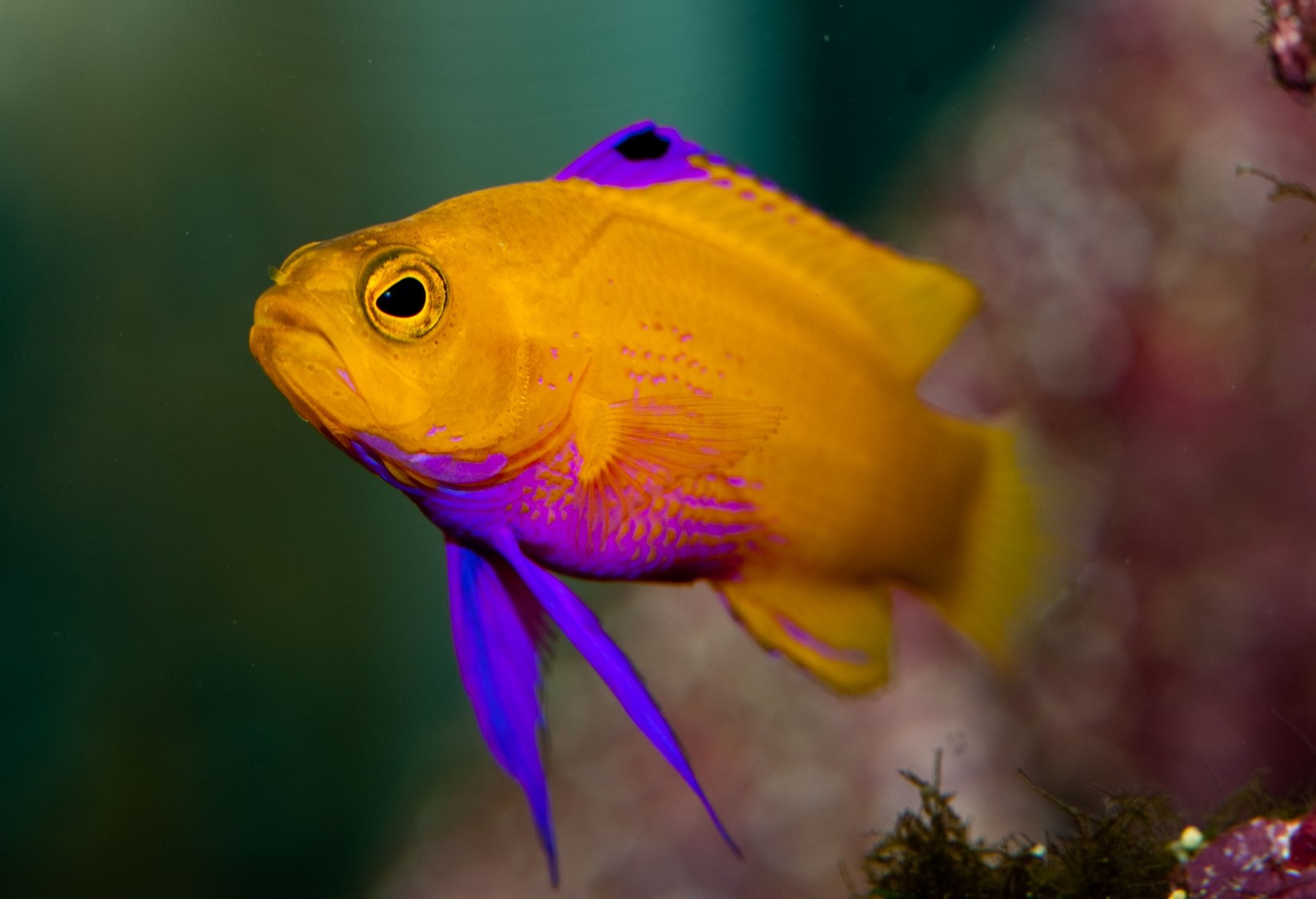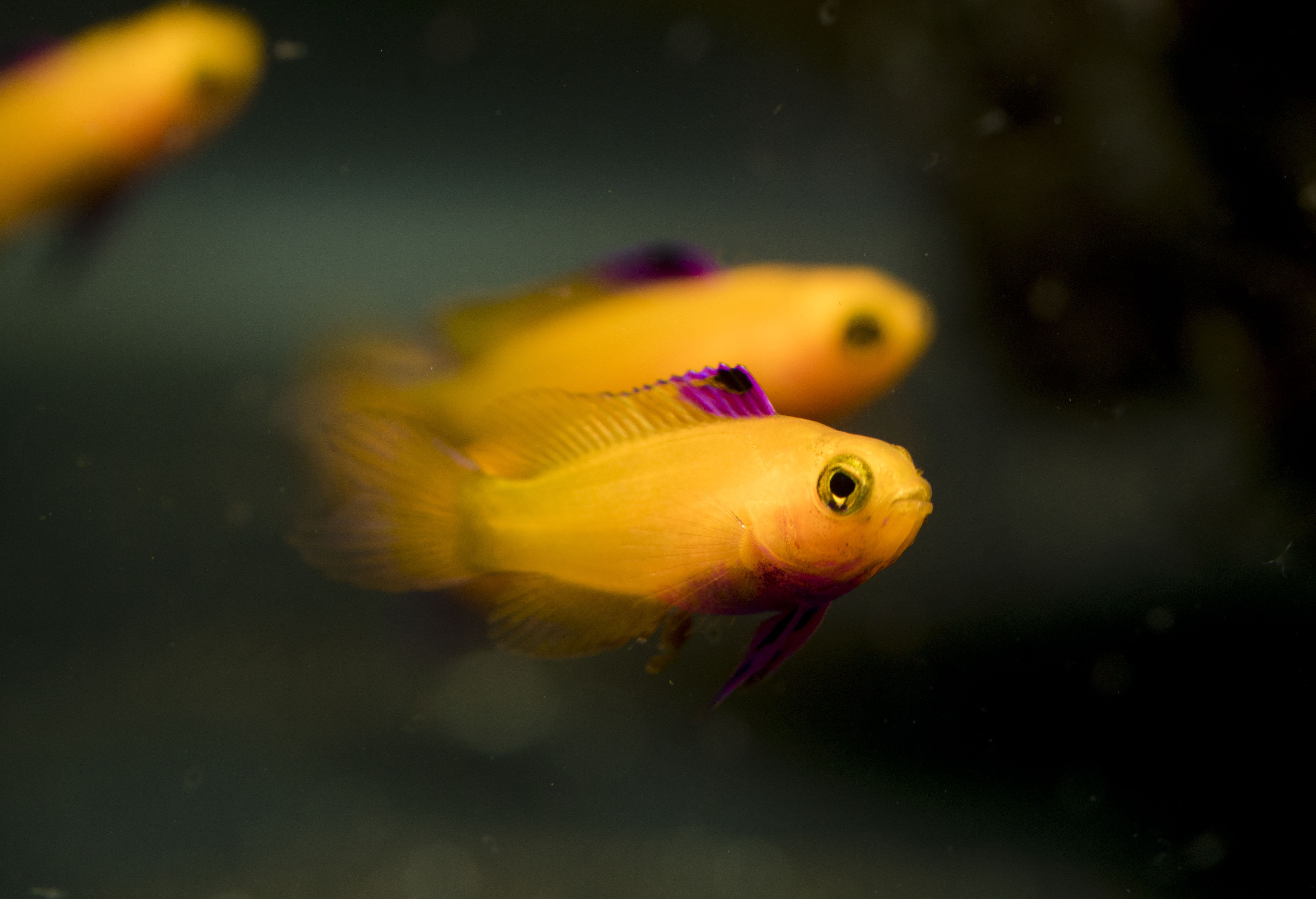
Last week the Federal Government’s Office of Foreign Asset Control (OFAC) confirmed that, although the US trade embargo against Cuba expressly forbids the importation of a wide variety of products of Cuban origin, including aquarium fishes, there is no restriction on the distribution of American-born offspring of fishes that were obtained legally through their permitting process. This is great news for so many reasons. It means that preserved specimens can be deposited in museum collections and sent out for molecular analysis without having to jump through any additional legal hoops. It means that public aquaria can display live specimens without the need for a special permit to possess them; and it also means that species impacted by the embargo now have a legal path to make their way into the aquarium trade.
If you’ve been following the Gramma dejongi saga, you know that this recently-discovered basslet has never been available in the US, and has only been legally imported once, in 2016. You may also have read that this exquisitely-colored Gramma, considered by many to be the Holy Grail of basslets, has recently been bred in captivity for the first time, at the Suffolk County Community College Marine Science Lab in Riverhead, NY. Although the original six wild-caught specimens must remain here according to the terms of our permit, the offspring produced in their first reproductive season are now free to move about the country. So what is the fate of these little gems? The first few will be donated to a public aquarium as part of a display on sympatric speciation (the evolutionary divergence of species in the absence of a geographic barrier). The others will be handed over to the anonymous underwriter who donated the funding to import the initial broodstock. Presumably, he will release them into the aquarium trade and hopefully, he will get enough of a return on his investment that he will continue to support these kinds of projects. I don’t know what’s more exciting, that Gramma dejongi will finally be available, legally in the US or that my aquaculture students will have the unique opportunity to work with larvae of such an incredibly rare and beautiful fish.

Two of the first Gramma dejongi ever raised in captivity










I’ll trade some xenia frags for a pair.
I don’t think that would be enough, but it never hurts to throw it out there 😉 , learn a bit more about the Gramma DeJongi with Todd on this short tour
https://youtu.be/B2qHekGo-Wk
Will the people if Cuba be compensated for the use of their homecountry’s genetic assets for a U.S. value chain?
No. Nor have any CB MO for that matter. Plus, I don’t think that’s legal 😉
Don’t think the world works like that
gorgeous fish!
Not if Trump has his way… these immigrant basslets are taking jobs from our local, Florida-caught G. loreto.
Nice fish but a total rip off.